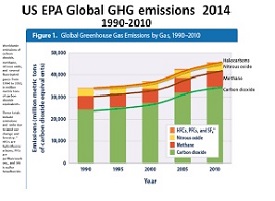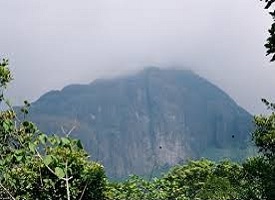Current Affairs March 2016 - Environment
News 1 - Year 2014 recorded highest anthropogenic carbon release in the past 66 million years.

Carbon release rates from anthropogenic sources reached a record high of ~10 Pg C yr−1 in 2014 which is the highest in the past 66 million years. It was revealed in an article in the Nature Geoscience journal.
Such a ‘no-analogue’ state represents a fundamental challenge in constraining future climate projections. As per the research, current carbon emissions, mainly from burning fossil fuels, are about 10 billion tonnes a year, against 1.1 billion a year spread over 4000 years at the onset of the fast warming 56 million years ago.
News 2 - New Environment Standards for Gensets Notified.

The Ministry of Environment, Forest & Climate Change has notified new environment standards for Gensets running on Liquid Petroleum Gas (LPG) / Natural Gas (NG), Diesel with LPG / NG and Petrol with LPG / NG operated in various cities / towns in the country.
The primary aim of the new standards for Gensets is to control air and noise pollution emanating from the operation of Gensets. These standards were recommended by the Central Pollution Control Board (CPCB) after consultations with industries and other stakeholders.
News 3 - India’s Agasthyamala among 20 World Heritage Sites added by UNESCO.

The Agasthyamala Biosphere Reserve was among 20 new sites added by UNESCO in the World Network of Biosphere Reserves bringing the total number of biosphere reserves to 669 sites in 120 countries, including 16 transboundary sites. With the addition of ABR, 10 of the 18 biosphere reserves of India have made it to the list.
Agasthyamala Biosphere Reserve is located in the Western Ghats and is home to 2254 species of higher plants including about 400 that are endemic.



